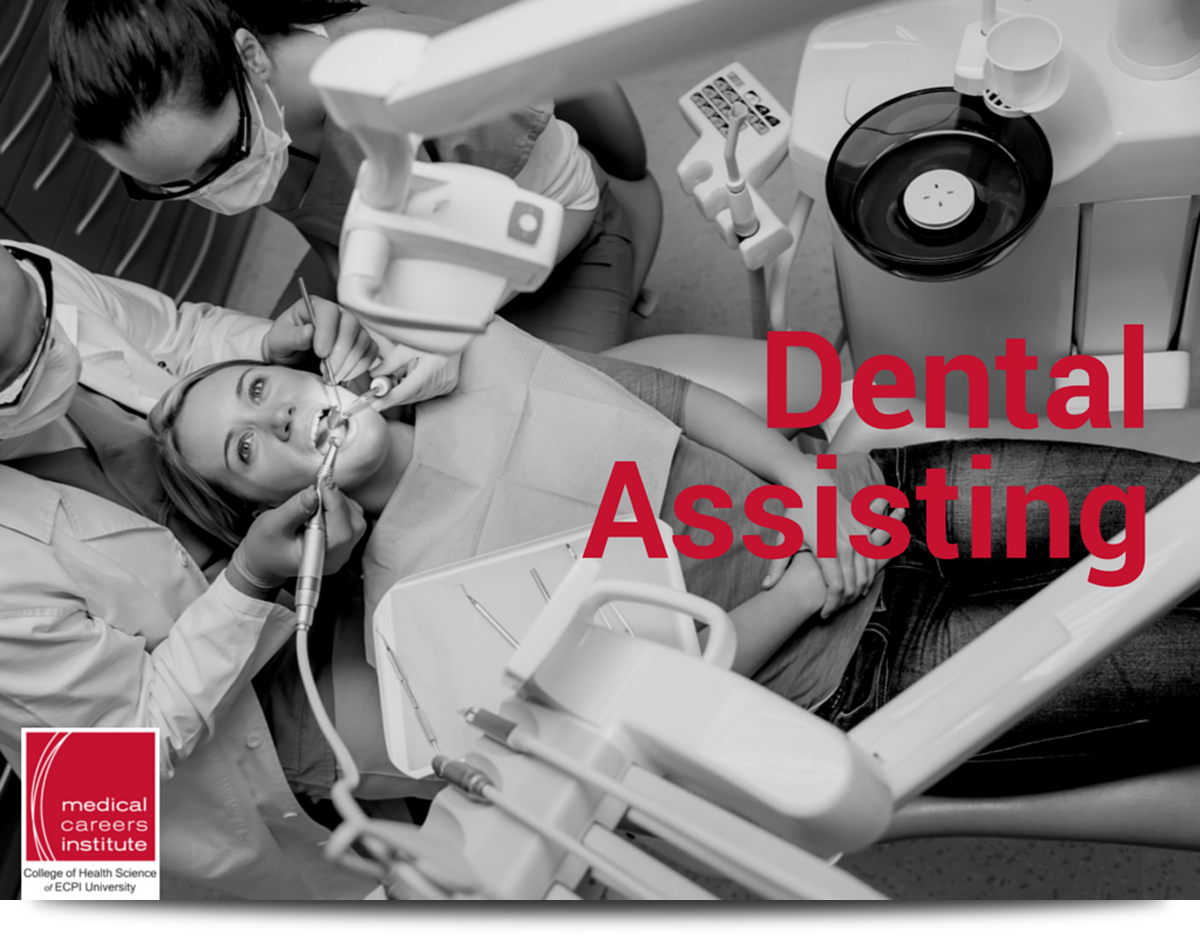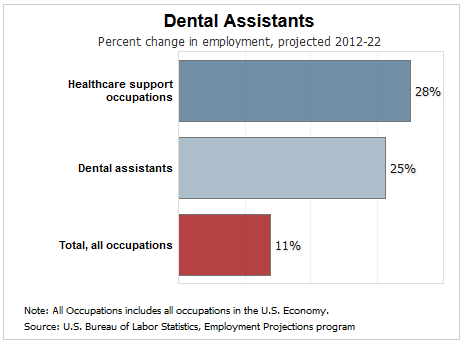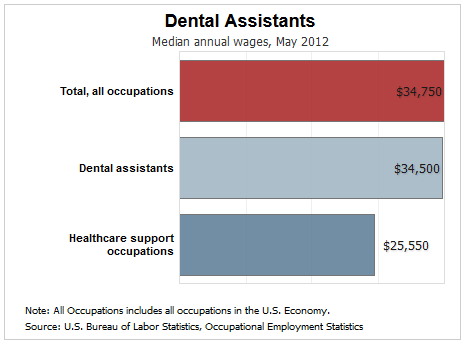
For those interested in interacting directly with patients, working in a professional healthcare setting, and assisting doctors on a daily basis, a career as a dental assistant is a wonderful, rewarding, and challenging option.
Dental assistants are a vital part of the dental community and provide a valuable service to dentists and patients.
In addition to offering a flexible schedule, a competitive salary, and the opportunity to help others, there’s lots to know about a dental assisting degree; here’s a look at some of the opportunities, responsibilities, and rewards of this degree.
There is a growing demand for dental assistants.
The Bureau of Labor Statistics estimates a 25% increase in positions for dental assistants by 2022. With a greater awareness of dental health and proper hygiene, more individuals are able to maintain the integrity of their original teeth longer than older generations; as a result, there’s an increase in the need for professional dental care. In addition, new medical care laws now enable more people access to health insurance; whether the coverage is provided by the government or an employer, individuals and families are embracing dental coverage opportunities. With such a high demand for dental care, there’s a greater need for dental assistants.

A degree in dental assisting provides a career in the medical field without years of study and a huge financial commitment.
Many dental assistants enjoy being able not only to assist the doctor on major complicated procedures, but also perform routine procedures on their own. Dental assisting is the perfect field for individuals who want to work in a professional field that requires medical experience without the added stress, financial investment, and years of schooling involved in become a dentist or oral surgeon.
Dental assisting offers variety and flexibility.
From assisting dentists, coordinating scheduling, and taking X-rays to contributing to the all-around success of the dental practice, the role of a dental assistant is both challenging and rewarding. The American Dental Association states that most dental assistants thoroughly enjoy their work because many dental offices are relaxed, interesting places to work. While most dental assistants choose to work full-time, one in three embrace the flexibility of being able to work part time, some choose to work only in the evenings, and others welcome a weekend schedule.
A degree in dental assisting provides non-traditional options.
In addition to the traditional dentist’s office setting, dental assisting offers opportunities in other professional settings, including: specialty offices, hospitals, pediatric centers, schools, and corporate environments. Many dental assistants enjoy teaching others, working at insurance companies to help settle dental claims, or working as a sales representative of dental products.
Dental assistants work closely with patients.
Many dental assistants will have a greater chance to spend more time directly with patients than dentists, helping patients when they arrive, making sure they’re comfortable and prepared for the visit, and ensuring they’re doing well during the procedure. Being able to provide a great deal of individual attention to patients means dental assistants have an easier time getting to know patients and helping them have the most stress-free experience possible.
The dental assisting degree provides professional training in a short period of time.
For those with less time or resources to go to school, a degree in dental assisting can be earned in as few as two years, for some even less. Those wanting to get their career off the ground quickly can pursue a degree in dental assisting and be working in a professional setting sooner than many other degrees. While dental assistants are expected to be diligent and responsible, the training requirements are much less demanding than other aspects of dentistry.
Investing in a degree in dental assisting will reap many benefits.
According to the Bureau of Labor Statistics, the median income for a Dental Assistant is $34,500. The top 10% of all Dental Assistants earned as much as $47,580 and the bottom 10% earned as much as $23,550. While these salaries are average, the amount a professional dental assistant can earn depends on several variables, including: the geographic location, the years of experience, and the employer or dental practice. As in any field, exceptional, dedicated, confident, personable, highly-skilled and experienced dental assistants always have the opportunity to earn more. Earning similar wages to those in comparable careers such as physical therapy assistants and veterinary technicians, dental assistants can expect a comfortable salary along with a rewarding career.

Offering hands-on learning experience in an accredited university environment, ECPI University boasts an excellent program allowing one to earn a formal two-year degree in dental assisting in as little as a year and a half. With small class sizes, flexible scheduling, and the accessibility to online classes, ECPI University’s College of Health Science, Medical Careers Institute, has a program that enables the dental assistant student to enjoy individual instruction, free tutoring, and a variety of teaching styles.
DISCLAIMER – ECPI University makes no claim, warranty or guarantee as to actual employability or earning potential to current, past or future students or graduates of any educational program we offer. The ECPI University website is published for informational purposes only. Every effort is made to ensure the accuracy of information contained on the ECPI.edu domain; however, no warranty of accuracy is made. No contractual rights, either expressed or implied, are created by its content.


